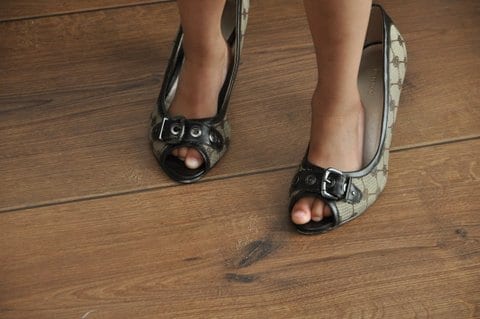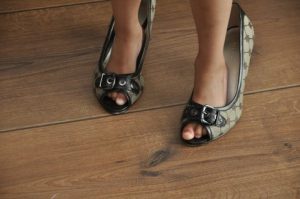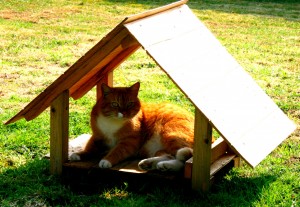
by Olga Mecking | Apr 21, 2014 | 2014, Awareness, Being Thankful, Bilingual, Communication, Family, Health, Humanity, Humor, Kids, Language, Life Balance, Maternal Health, Motherhood, Netherlands, Parenting, Siblings, World Motherhood, Younger Children
 One of my very favourite human qualities is a sense of humour. I must confess that I sometimes find people lacking this wonderful quality, as boring. It isn’t nice of course but I believe a sense of humour is paramount to any human’s well being or even survival. Especially if you’re a mom.
One of my very favourite human qualities is a sense of humour. I must confess that I sometimes find people lacking this wonderful quality, as boring. It isn’t nice of course but I believe a sense of humour is paramount to any human’s well being or even survival. Especially if you’re a mom.
I love all kinds of humour: simple, sophisticated, absurd, or even black humour. By the latter, I mean of course, serious matters that are funny.
When my days are filled with screams and cries and tantrums, the only thing that keeps me afloat is laughing about it. And when I share my pearls of wisdom on Facebook, not only does it make me feel better, it makes others feel better, too. I also love reading snarky, funny, honest posts that make me nod my head in agreement. When times are hard, humour helps me survive.
We all know that parenting is tough and humour can help with that as well. I, for one, rely heavily on it. When my daughter refuses to put on her jacket, I ask her to put on her pj’s. Then her bathing suit. Then her bathrobe. She laughs, says no to all I suggest and puts on her jacket without any problems. That is, obviously provided that I actually remember to laugh instead of to yell.
I often try to persuade my big girl that I have 10 legs. She kindly and patiently explains that no I really can’t have 10 legs. “Why?” I ask her. She tries to explain that humans only have 2 legs but to no avail. I really need to know why I only have 2 legs, not 10. I mean, 2 legs, how lame is that! At some point, she cracks up and so do I and we both laugh until we can’t laugh anymore.
So you see, it is not very surprising that I want my children to have a sense of humour and a big one at that. Puns, laughter and jokes are normal in our house. And already, I begin seeing it in my children. For instance, I loved a recent conversation with my three-year old.
“Mama?”- she asks me, with a glint in her eye, and a smile playing in the corner of her mouth.
“Yes, J?”- I answer, wondering what she’s going to say.
“Mama?”- she repeats, her tone still serious but the smile more visible.
“Yes, J?”- I repeat, not sure what to think of it.
“Pee-Pah-Paw!” she says, out of nowhere, her laughter filling the house. “Pee-pah-paw”- I say, and soon the whole family joins her till our bellies hurt.
My baby has a mischievous smile that makes my heart melt. When he laughs, I think I’m the luckiest mom on Earth. I ‘m sure that he too will grow up to have a sense of humour, just like his sisters.
I especially love when they make multilingual jokes, like “Ja-vocado” and “Nie-vocado” (“ja” is “yes” in German while “nie” means “no” in Polish). When asked what a ja-vocado is, my eldest daughter said that it’s a fruit that is yellow on the outside and pink on the inside and it is sweet and very delicious and that she likes it a lot.Funny that she can imagine liking fruit that doesn’t even exist.
I am always surprised how many functions humour can have: it can help you through tough times. It can turn a rejection into cooperation, in children and adults alike. It makes children clever and great with languages. It makes us see things in a different way.This is why I feel it is so important.
I’m not funny all the time, though and that’s fine. It’s OK to be sad sometimes. I won’t pretend that my day is better than it is. But when I remember, I find in myself the strength to stick my tongue out at the universe and say: “Pee-Pah-Paw”. And laugh until my belly hurts.
Are you raising your kids to have a sense of humour or appreciate humour?
This is an original post to World Moms Blog from our writer in the Netherlands, Olga Mecking.
The image used in this post is credited to cherijoyful. It holds a Flickr Creative Commons attribution license.
Olga is a Polish woman living in the Netherlands with her German husband. She is a multilingual expat mom to three trilingual children (even though, theoretically, only one is trilingual since she's old enough to speak). She loves being an expat, exploring new cultures, learning languages, cooking and raising her children. Occasionally, Olga gives trainings in intercultural communication and works as a translator. Otherwise, you can find her sharing her experiences on her blog, The European Mama. Also take a while to visit her Facebook page .
More Posts - Website
Follow Me:




by Sophie Walker (UK) | Mar 17, 2014 | 2014, Being Thankful, Childhood, Education, Girls, Kids, Life Lesson, Motherhood, Parenting, Preschool, Sophie Walker, Special Needs, UK, Uncategorized, World Motherhood, Younger Children
 Betty and I are walking to school in the rain. It is a miserable morning – grey, cold and squally. We are tilting our umbrellas sideways to shield ourselves from the gusts of needles thrown at us as we progress along the avenue. I am forcing bright chatter and thinking of the warm cup of tea I will have when I get home.
Betty and I are walking to school in the rain. It is a miserable morning – grey, cold and squally. We are tilting our umbrellas sideways to shield ourselves from the gusts of needles thrown at us as we progress along the avenue. I am forcing bright chatter and thinking of the warm cup of tea I will have when I get home.
Betty’s umbrella is white and pink and round like a daisy. It has pretty little petals and yellow stripes, and a bumble-bee attached to the top. The bumble-bee is looking very sorry for himself this morning, buffeted hither and to. I can’t see Betty’s face but I can tell by the drag of her toes that she is feeling sorry for herself too.
I lean down and enquire: “How are you doing, darling?”
A woebegone voice answers. “Ok.”
Then she asks: “Mummy, did this umbrella used to belong to my big sister?”
I tell her yes, it did.
“And Mummy, did she used to walk to school with it too?”
Again, I aver, she did.
A pause. Then, cautiously: “Mummy, did my sister ever used to not want to go to school?”
I can see where this is going now and I give her hand a sympathetic little squeeze. I say yes, there were days when her big sister didn’t really feel like it either.
At this Betty stops and tips back the rim of her umbrella to look up at me. Her eyes are welling with tears. She asks: “And did she used to worry about making mistakes too?”
Betty started school last September at the age of four. She is now four and a half and a month into her second term. She flew through the first twelve weeks with ease – enthusiastic, inquisitive, and keen to try new things. This term, she has cried often on leaving me in the mornings. Afternoons start with jubilation at being home, then slide slowly from relaxation to upset as night approaches.
As soon as I call her for her bath it is her cue to start an hour-long conversation about whether or not she will have to go to school again in the morning.
Now I look at her, looking up at me, her face a mixture of rain and tears, and I think: She’s far too little for all this. I bend down to her and put my umbrella down and hug her. I tell her: “Everyone makes mistakes. It doesn’t matter about making mistakes. The thing is just to try your best. Have a little go.”
But as I’m saying it, I’m thinking that really, I just want to put her in my pocket and take her home. She is not yet five. She shouldn’t be afraid of new things in case she finds herself unable to do them to a standard that will make her happy.
Last term, she learned phonics – how to make the sounds of the alphabet. This term, she has realised that those phonics are letters and that by putting them together and sounding them out she can both read and write. And it terrifies her.
It is Learning with a capital ‘L’. Every day now she wonders what Learning she will have to conquer next.
The British education system is under huge scrutiny at the moment. The coalition government’s Conservative education minister Michael Gove has decided that it needs an overhaul. There is too much emphasis on coursework, so he has decreed the system should revert to a grand slam of end-of-year exams. There is not enough emphasis on rote learning, so reciting dates and times-tables are back in.
So far I have reacted to Gove’s decisions with horror mainly because of the impact they will likely have on my elder daughter, who has Asperger’s Syndrome, and will struggle even more under a system that removes the chance for her to shine via project work. Gove’s reforms are a disaster for Grace.
Now, looking at Betty, who I had expected to skip through the system, I find myself wondering how she will cope. Recently Gove said he was thinking of introducing formal assessments for four and five-year-olds when they enter school in England, in order to be able to monitor their progress.
I care that my children should progress well through the education system, and flourish in their chosen careers. But as I kissed Betty goodbye in her classroom that morning, and watched her teacher take her gently by the hand to distract her from her upset, I thought: there must be a better way to do this.
So – how do you do it, where you live? And do you think it works?
This is an original post to World Moms Blog from our writer in England, Sophie Walker.
The picture used in this post is credited to Roger McCallum. It holds a Flickr Creative Commons attribution license.

Writer, mother, runner: Sophie works for an international news agency and has written about economics, politics, trade, war, diplomacy and finance from datelines as diverse as Paris, Washington, Hong Kong, Kabul, Baghdad and Islamabad. She now lives in London with her husband, two daughters and two step-sons.
Sophie's elder daughter Grace was diagnosed with Asperger Syndrome several years ago. Grace is a bright, artistic girl who nonetheless struggles to fit into a world she often finds hard to understand. Sophie and Grace have come across great kindness but more often been shocked by how little people know and understand about autism and by how difficult it is to get Grace the help she needs.
Sophie writes about Grace’s daily challenges, and those of the grueling training regimes she sets herself to run long-distance events in order to raise awareness and funds for Britain’s National Autistic Society so that Grace and children like her can blossom. Her book "Grace Under Pressure: Going The Distance as an Asperger's Mum" was published by Little, Brown (Piatkus) in 2012. Her blog is called Grace Under Pressure.
More Posts

by Mirjam | Mar 3, 2014 | 2014, Mental Illness, Netherlands, Post Partum Depression, Uncategorized, World Motherhood
 It has been nearly two years since I asked for help.
It has been nearly two years since I asked for help.
Motherhood and life felt like too much of a burden for me. After years of thinking that the problem was me, it finally dawned on me that there might be something wrong.
I started therapy and found out that I had suffered from postpartum depression. Not once but three times. I also found out that the feelings I struggled with in my early teens were not just regular teen struggles. I found out that it was also depression that I had struggled with.
These past two years have been the most intense years of my life. I have experienced tremendous growth. I have opened new doors and have closed old doors behind me.
People talk about therapy lightly. They think therapy is nothing more than paying someone to listen and to give you advice. Therapy is no such thing. Therapy is facing yourself. Therapy is opening doors and looking into the dark corners of your soul. It is work. Hard work that sometimes leaves you exhausted. Being as courageous, as walking into a lion’s den unarmed. Vulnerable. It is raw naked honesty and perseverance. Going down a steep, rocky and sometimes dark road without knowing when you will reach the end of it. It’s knowing that you can decide to leave that road at any moment, yet not giving in to that thought. Because you want to get well.
For the past two years I have been going down this road. To say it has been a roller coaster ride, is to take a devastating hurricane and to call it a warm summer’s breeze. The hardest part? Being a mother at the same time.
There is no time off. No time to lick my wounds or to take a break. When I come out of therapy I need to step quickly into my mommy shoes. Some days I come out of therapy feeling empowered. I stand tall and firm and switch roles like a pro. Other days I feel delivered, freed from a burden that has been carried for way too long. Those are the days that my mommy shoes feel like dancing shoes. Then there are days that I am exhausted from the hard work and I feel empty with little left to give. On those days my Mommy shoes are put on reluctantly.
Some days the carefully constructed bandages around my heart are ripped from their place and old wounds are exposed. My heart breaks and scatters into a thousand pieces. An hour passes as I work through the pain. When the clock strikes reality, I hastily gather the pieces and put them back into place as best I can. I wear my mommy shoes, and though it is I that longs to be nurtured, it is I that gives the loving smile; it is I that spreads my arms in welcome; I that carries and I that offers warmth and shelter.
On such days my feet struggle to find solid ground underneath my shoes. When my child reaches for me, my grasp is firm. And as I hold her little warm hand softly in mine, the ground underneath my feet gradually feels stable again.
Have you ever experienced something, that made it hard for you to step back into your ‘Mommy shoes’? I would love to hear about it.
This is an original post to World Moms Blog by our author in the Netherlands, Mirjam.
The image used in this post is credited to the author.
Mirjam was born in warm, sunny Surinam, but raised in the cold, rainy Netherlands.
She´s the mom of three rambunctious beauties and has been married for over two decades to the love of her life.
Every day she´s challenged by combining the best and worst of two cultures at home.
She used to be an elementary school teacher but is now a stay at home Mom. In her free time she loves to pick up her photo camera.
Mirjam has had a life long battle with depression and is not afraid to talk about it.
She enjoys being a blogger, an amateur photographer, and loves being creative in many ways.
But most of all she loves live and laughter, even though sometimes she is the joke herself.
You can find Mirjam (sporadically) at her blog Apples and Roses where she blogs about her battle with depression and finding beauty in the simplest of things. You can also find Mirjam on Twitter and Instagram.
More Posts - Website
Follow Me:



by Nadege Nicoll | Feb 21, 2014 | Family, France, Humor, Motherhood, Nadege Nicoll, Parenting, World Interviews, World Moms Blog Writer Interview, Younger Children
 Where in the world do you live? And, are you from there?
Where in the world do you live? And, are you from there?
I live in the USA, in New Jersey to be more precise. I am originally from France but have been living abroad for almost twenty years – mainly in England and now here.
What language(s) do you speak?
I speak French and English. In a previous life, I used to be able to hold a conversation in Spanish, but those days are gone…
When did you first become a mother?
My first child was born ten years ago. I have three children and I feel that I became a new, different mother with each of them. So to answer the question fully, I first became a mother ten years ago, then nine years ago and four years ago.
Are you a stay-at-home mom or do you work?
I stopped working to be with my kids. Now, I write books for elementary school aged children. I don’t know if it qualifies as “working”, because I love it so much it does not feel like work at all.
Why do you blog/write?
There are a few reasons why I blog. Firstly, I want to put a smile on other moms’ faces. My blog is a humorous take on motherhood and I for one know that I always have room for a little humor in my life! Secondly, blogging is a great outlet for me: instead of getting upset because I just told my kids to pick up their coats and they are looking at me like I am from another planet, I just snap a picture of their faces and blog about it. Finally, I am hoping that if people like my blogging style, they will get curious about my books – and love them as well.
How would you say that you are different from other mothers?
I am not. Like any other mom, my most important mission is to take care of my family and I thrive to do the best that I can. I am not perfect, I don’t always get it right, I have my fair share of mistakes, misjudgments and mishaps. But I try my best. Everyday.
What do you view as the challenges of raising a child in today’s world?
When I was a kid, I would make mistakes and my parents would use this as an opportunity to help me learn from it. Nowadays, we have to teach our children to not get it wrong at all – because, in a world where everybody is connected, a wrong statement, a silly act that would have had little consequences in my days, are going to be tweeted, snapped on a picture and posted on the net. They could define our kids for the rest of their lives. That scares me. There is no trial and error for them anymore. That’s a horrible thought. Imagine if our mom abilities were defined by what we do wrong?
How did you find World Moms Blog (WMB)?
I met one of WMB editors at a friend’s house and we connected right away. For all the things that scare me about internet, it also enabled me to get connected to this great group of women.
This interview is an original post to World Moms Blog by Nadege Nicoll, our new USA writer in New Jersey.
ABOUT NADEGE
Nadege Nicoll was born in France but now lives permanently in New Jersey with her family. She stopped working in the corporate world to raise her three children and multiple pets, thus secretly gathering material for her books. She writes humorous fictions for kids aged 8 to 12. She published her first chapter book, “Living with Grown-Ups: Raising Parents” in March 2013. It is a pretend self-help handbook for children to cope with their parents’ inconsistencies. Her second volume in the series just came out in October 2013. “Living with Grown-Ups: Duties and Responsibilities” has gone one step up in showing parents’ whacky behavior! Although the primary audience for her series is kids, parents are sure to giggle and laugh at their own weird ways. It will be hard for them to tell their kids off with a straight face after they read “Living with Grown-Ups”! Nadege also writes a daily blog for moms who need to smile at every day’s life. She can be found on Twitter, Facebook and her website www.nadegenicoll.com.
Nadege Nicoll was born in France but now lives permanently in New Jersey with her family. She stopped working in the corporate world to raise her three children and multiple pets, thus secretly gathering material for her books. She writes humorous fictions for kids aged 8 to 12. She published her first chapter book, “Living with Grown-Ups: Raising Parents” in March 2013. Her second volume in the series just came out in October 2013. “Living with Grown-Ups: Duties and Responsibilities” Both books take an amusing look at parents’ inconsistent behaviors, seen from the perspective of kids. Nadege hopes that with her work, children will embrace reading and adults will re-discover the children side of parenthood. Nadege has a few more volumes ready to print, so watch this space…
More Posts - Website
Follow Me:



by Katinka | Feb 17, 2014 | 2014, Adoption, Awareness, Being Thankful, Belgium, Birth Parents, Childhood, Cultural Differences, Ethiopia, Eye on Culture, Family, Friendship, Home, Life Lesson, Motherhood, Multicultural, Parenting, Penguin and Panther, Relationships, Siblings, World Motherhood, Younger Children
 We have a cat. A lot of people have a cat. Ours is named Rino. As in rhinoceros, minus the “h” and the horn.
We have a cat. A lot of people have a cat. Ours is named Rino. As in rhinoceros, minus the “h” and the horn.
Looking back, I got him when he was still a little too small, so he definitely sees me as his cat-mom. He slept in the Big Bedroom during the first months of his life, with me stroking him upon every little yelp. When he wants to cuddle, he tucks his head in my armpit, as if he wants to get nursed. He’s the cuddliest cat I know. And the best frog catcher as well.
Rino is get-out-of-jail-free card. He radiates reassurance. Peace of mind. When I’m overwhelmed by motherhood, he can convince me to allow the children to come back downstairs after their time-out. He reminds me I prefer talking above time-outs.
When the kids are finally asleep, he crashes the couch with me. There’s nothing like the sound and feel of a purring cat to take the daily stress away. Did I mention he’s fat and orange? The perfect blanket. Matches most of my cloths too.
When our son is having a bad morning, he usually refuses to put on his cloths. He goes on strike on the couch, with his head beneath the cushions. We aren’t able to get through to him nor make eye contact. His sister will try, but she always manages to make things worse. Not her fault, and she earns her credits for trying the impossible.
And then Rino comes pawing in. Takes a few bites from his food and then goes straight for his ‘big brother’. The minute I tell my son who is coming for him, we see his face again. Eleven minutes, fifty three strokes and fourteen cuddles later, he will be dressed and heading for breakfast. The same goes for homework, violin practice and heart break: Rino will drag him through.
When our adopted daughter first met Rino, she nearly jumped to the ceiling. She only knew cats as thieves that should be chased from the orphanage’s kitchen, so she hissed and motioned to get him out, hiding behind my skirts. She didn’t develop a liking for stuffed animals either, with a brother sneaking up on her with those. He didn’t particularly like his new little sister those first months and couldn’t stop scaring her away, so we ended up hiding all the stuffed tigers and cats from them both.
Two years later, their bond has grown. They do continue teasing each other. They fight like little demons over who gets to open the curtains in the morning but an hour later in school the little one will call for her brother when she’s running from kissing boys. They always end up wanting to play with the exact same box of Legos that was untouched for weeks before, but just as frequently, they will team up against me, especially when candy is at stake. I was told that is universal proof they’ve developed a sibling bond.
The same goes for Rino. Our daughter considers him part of the family now. She demands we talk about him with first ànd last name, our family name, and she doesn’t believe it’s fair he’s not allowed to go to the zoo with us. He would love the big cats, you know. I’m glad Rino is visibly terrified inside moving vehicles so in the end our daughter’s more or less convinced he wouldn’t really like joining us.
A few weeks ago, my daughter asked how Rino came to our family. Did he come willing? Or was he taken from his mommy? After we hesitantly told her it was the latter, she immediately went to find him and whispered in his ear, “You’re just like me!” Ever since, she considers him her little brother even more.
He has become her mirror, in a way. Whenever she’s fantasizing about what she would like to tell her birth mother, he’s a major part of her story. She would like to send her birth mother pictures and drawings of Rino, but not of herself. Pictures of Rino sleeping in the bird house, of Rino coming from the woods when he hears our car approaching, of Rino sleeping with his paws in the air and head to the side, like a wrongly assembled toy. She wants to tell her all about him.
But most of all, she wants to tell her birth mother that we are such great and loving parents.
For Rino, of course.
Do you have pets that enrich your family? Do they help your children cope with life’s sharp edges? Feel free to share about their funny and serious contributions in your daily life!
This is an original post to World Moms Blog by K10K from The Penguin and The Panther.
The picture in this post is credited to the author.
If you ask her about her daytime job, Katinka will tell you all about the challenge of studying the fate of radioactive substances in the deep subsurface. Her most demanding and rewarding job however is raising four kids together with five other parents, each with their own quirks, wishes and (dis)abilities. As parenting and especially co-parenting involves a lot of letting go, she finds herself singing the theme song to Frozen over and over again, even when the kids are not even there...
More Posts

by Olga Mecking | Feb 3, 2014 | 2014, Awareness, Being Thankful, Bilingual, Culture, Education, Expat Life, Humanitarian, Inspirational, Language, Life Lesson, Living Abroad, Millennium Development Goals, Motherhood, Moving, Netherlands, Philanthropy, Shot@Life, Social Good, Stress, World Motherhood
 Until a friend of mine had a terrible tragic accident in the Himalaya mountains that left her in a coma, I had never donated to a charity. We collected some money at our wedding to give to her husband, and my mom also donated some money to a charity that takes care of her, but that was it.
Until a friend of mine had a terrible tragic accident in the Himalaya mountains that left her in a coma, I had never donated to a charity. We collected some money at our wedding to give to her husband, and my mom also donated some money to a charity that takes care of her, but that was it.
Since moving to another country and having children, I have been looking for ways to help others. I want to donate to more charities. I am just looking for the right one.
It isn’t easy. I have heard of many charities that have turned out to be scams or which just took people’s money and ran.
My situation is especially difficult because I live in a foreign country and do not know about the charities here. Though my Dutch is fluent, I still have trouble communicating in this language sometimes. In the Netherlands, many people go house-to-house collecting money for charities.
I think it is interesting to find out about charities that way because they’re often ones I’ve never heard of before. They are often small scale actions rather than big ones. But I think the mistake they’re making is the following one: before I contribute, I’d like to find out more about the organization, whether my friends have heard of it, whether there is something about them that raises red flags.
I think I might even agree to donate money if they were willing to leave a business card or something I could find them by. Instead, they want me to make a monthly commitment. Again, because I do not know them, I am not so keen on giving them my credit card number.
At the same time, my heart breaks for all the little children going through invasive treatments; who are terminally ill; who look like little ghosts because they have lost so much weight from all their chemo; for all the sick people who can’t get the treatment they need; or for children who are not so fortunate as mine; or moms in poorer countries, who have to travel for many days if they want to give birth in a hospital.
I really want to help. Since I became a mom and later a World Moms Blog contributor, I have been made aware of needs and dreams that can’t be fulfilled because of the bad conditions all around the world.
But the fact is that finding the right charity isn’t easy. I mostly say no to these door-to-door people. I do it with a heavy heart. I just want to make sure that I am really helping people in need, and not wasting my money.
Luckily, while looking for a charity to donate to, there is a lot I can do:
- In my circle of friends alone, there have been situations where help was needed, including domestic violence and pregnancy problems.
- I am considering taking the Shot@Life pledge and becoming a Champion.
- I can learn as much as I can about actions such as #MDG’s and participate in our Twitter Parties.
- I can find local communities, organizations, charities and brands.
- Many of my friends are absolutely talented people and use their talents to collect money for a good cause, and I can help them spread the word and participate.
I know this sounds like nothing, and I am not telling this to show off how good of a person I am. It is just to show that even though it sounds like nothing, we all can make a difference. I am still very new at this social good cause. I still have a lot to learn. Already I have asked my fellow World Moms Blog contributors for help choosing a charity I can actually trust and they have come up with great charities.
I need to do more. I want to do more. I will do more.
Do you have a charity or cause worth supporting? Tell us about it and help spread the word
This is an original post to World Moms Blog from Olga Mecking in The Netherlands.
The image used in this post is credited to Images Money. It holds a Flickr Creative Commons attribution license.
Olga is a Polish woman living in the Netherlands with her German husband. She is a multilingual expat mom to three trilingual children (even though, theoretically, only one is trilingual since she's old enough to speak). She loves being an expat, exploring new cultures, learning languages, cooking and raising her children. Occasionally, Olga gives trainings in intercultural communication and works as a translator. Otherwise, you can find her sharing her experiences on her blog, The European Mama. Also take a while to visit her Facebook page .
More Posts - Website
Follow Me:




 One of my very favourite human qualities is a sense of humour. I must confess that I sometimes find people lacking this wonderful quality, as boring. It isn’t nice of course but I believe a sense of humour is paramount to any human’s well being or even survival. Especially if you’re a mom.
One of my very favourite human qualities is a sense of humour. I must confess that I sometimes find people lacking this wonderful quality, as boring. It isn’t nice of course but I believe a sense of humour is paramount to any human’s well being or even survival. Especially if you’re a mom.








 Where in the world do you live? And, are you from there?
Where in the world do you live? And, are you from there?






